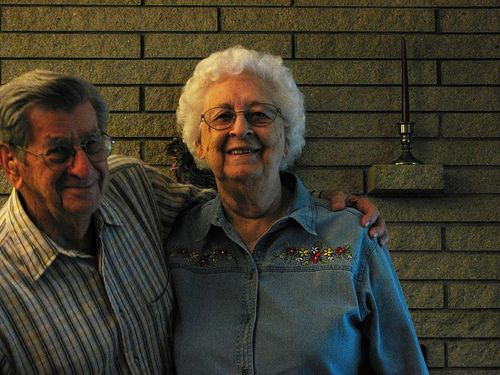The Health Care Crises Facing The Greatest Generation

They grew up tough during the Great Depression, and showed that toughness by defeating Nazism and Stalinist Communism, but now the Greatest Generation is facing the biggest challenge of their lives: growing old. These survivors are now facing health care crises that threaten to overwhelm them and do what the Depression and the Nazis could not do: break their spirit.
According to Dr. Brett Lu, director Psychiatric Emergency Services at Queen’s Medical Center in Honolulu, Hawaii, psychiatric emergency department visits for seniors are increasing. In fact, they increased 30% in just one year (2008-2009). More people are calling 9-1-1 related to senior psychiatric problems, including attacks of caregivers, and in response to these attacks, people are giving seniors up to long-term care. Psychiatric care is something home care providers are singularly unqualified for, and long-term care doctors have already shown their preference for overmedicating seniors in ways that are detrimental to their health.
Although it hasn’t happened yet, there are many possible scenarios in which Medicare could be gutted in the upcoming years. As part of the bickering over new health care laws, Medicare has often hung in the balance as a bargaining chip for one side or the other. Thus far, both sides have been content with saber rattling, though both have also accused the other side of endangering this vital service for seniors.
Although seniors represent the largest growth sector, the health care system isn’t prepared to handle their care. A recent Institute of Medicine report warns of an impending geriatric care crisis to which the medical community has yet to respond. Although the elderly currently make up about 12% of the population and will make up 20% of the population by 2030, the supply of people trained to help the elderly is short, with just one doctor trained in geriatrics for every 2500 people. When you consider the disproportionate utilization of healthcare by the elderly, the gap is even worse. The elderly currently account for 25% of all doctor’s visits and 33% of all hospital stays, which may increase to 42% and 55% respectively. With this high demand, the shortage of doctors becomes critical.
It’s something many people neglect, but oral health is an essential part of your overall health. In fact, it’s so much neglected that it’s not even part of Medicare’s covered expenses. Partly as a result of this, seniors aren’t getting the oral health care they need. Seniors have limited access to oral health care because 60% or more lack dental insurance. Nearly half of all seniors may have untreated oral health care needs, and up to 30% of seniors that need them are lacking dentures. Perhaps 5% of seniors need urgent dental care.
Many blame misplaced priorities for shortfalls in senior care. For example, the average internist with no specialized training may make 10% more than a doctor in geriatrics. In addition, recent health care changes have attempted to bring children into the safety net by expanding Medicaid, CHIP, and other programs. However, senior dental care continues to be outside the scope of Medicare coverage, and there is no talk about increasing compensation for geriatric doctors.
If we truly want to honor and care for our seniors, we need to show it by devoting more resources to their care. It’s really the least we can do after all they have done for us.
License: Creative Commons image source
Dr. Matthew B. Candelaria (PhD, U of Kansas 2006) is a freelance writer and futurist. His recent experience losing his grandmother and mother-in-law after they received questionable care in long-term care facilities has inspired him to investigate the medical peril for the elderly.
